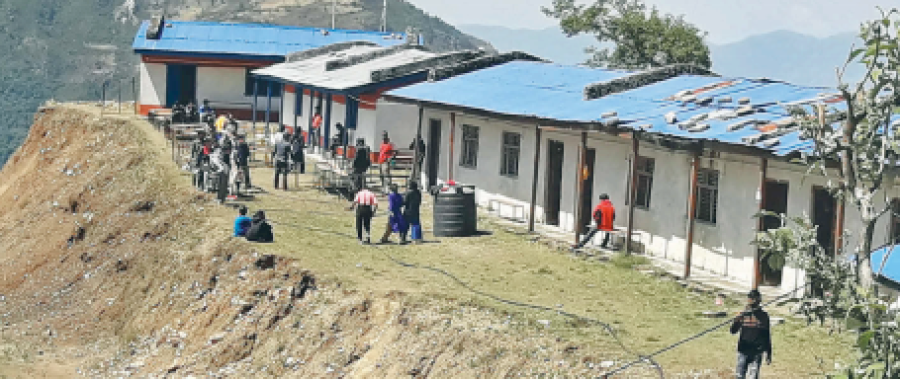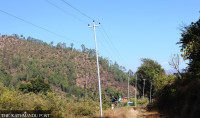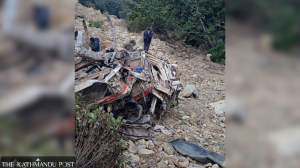Karnali Province
Poorly built quarantine facilities in Kalikot highlights local units’ hasty move
Most of the facilities in Kalikot do not meet the basic requirements set by the federal government.
Tularam Pandey
The local units in Kalikot began turning public buildings into quarantine facilities to house all the people returning home from outside the district. But most of these facilities were prepared in haste and they do not meet the standard set by the government. The local units’ inefficiency has led to more problems for those currently staying in these poorly built quarantine facilities.
Although the federal government has set standards for quarantine facilities, including the availability of beds with proper beddings, mosquito nets and drinking water, among others, most of the quarantine facilities in Kalikot do not meet the basic requirements.
Damanraj Bam, a member of the district-based Coronavirus Inspection Committee, said many quarantined individuals are forced to sleep on cold concrete floors for lack of beds. “There are no beds in the majority of these facilities. Those who are staying there have been compelled to sleep on makeshift beds made out of tarpaulins, synthetic foams and plastic sheets,” said Bam. “If the local units could manage basic infrastructures in these facilities, the risk of the spread of coronavirus and other diseases could be minimised.”
On Wednesday, 54 individuals, who reached Kalikot on a bus from Kathmandu, were kept in a quarantine facility at Tila Karnali Campus. Two days later, they chanted slogans against the authorities for making them stay in such a poorly built facility. They were later released from the facility and allowed to go home.
Mahabir Pandey, ward chairman of Khadachakra Ward No.3, said the ward office had to send the quarantined people home because the facility was not equipped to provide the individuals with proper beddings.
“Most of the newcomers refused to stay at the facility because it got cold at night,” Pandey said.
Namaraj BK, a resident of Dhaulagaha staying at a quarantine facility at a local school, said, “The days were unbearably hot under the galvanised-sheet roof and the nights were extremely cold. We couldn’t stay in such a poor condition so we left.”
Kali Bahadur Malla, a rights activist in the district, said, “The risk of coronavirus outbreak has increased in the villages due to the flow of newcomers. Most of them are not staying in quarantine facilities because the facilities lack even basics such as beds and warm clothes.”
Two weeks ago, a meeting called by the District Disaster Management Committee in the presence of Naresh Bhandari, minister of Internal Affairs and Law in Karnali Province, decided to reduce the number of beds in the district’s quarantine facilities citing that most of the facilities in Kalikot did not meet the government set standards. Initially, Kalikot had a total of 691 beds in 43 quarantine facilities, according to Katak Mahat, information officer at the Health Service Office in Kalikot. But now, the number of beds has been reduced to 661.
Jasi Prasad Pandey, mayor of Khadachakra Municipality, admitted that there’s a lack of basic facilities in the local unit’s quarantine facilities, as they were built in haste.
“There aren’t enough beds to accommodate the increasing number of new arrivals at the facilities. But we will now make proper arrangements in all five quarantine facilities in the municipality,” said Pandey.
The data at the District Police Office showed that around 3,000 individuals arrived in the district after the local units started to rescue stranded individuals from Kathmandu and other cities across the country during the ongoing lockdown.
According to Mahat, 238 individuals are currently staying at quarantine facilities in Naraharinath, Tigupha, Mahabai, Raskot, Pachaljharana and Subhakalika.
So far, 376 individuals have undergone rapid diagnostic tests in Kalikot.




 20.12°C Kathmandu
20.12°C Kathmandu












